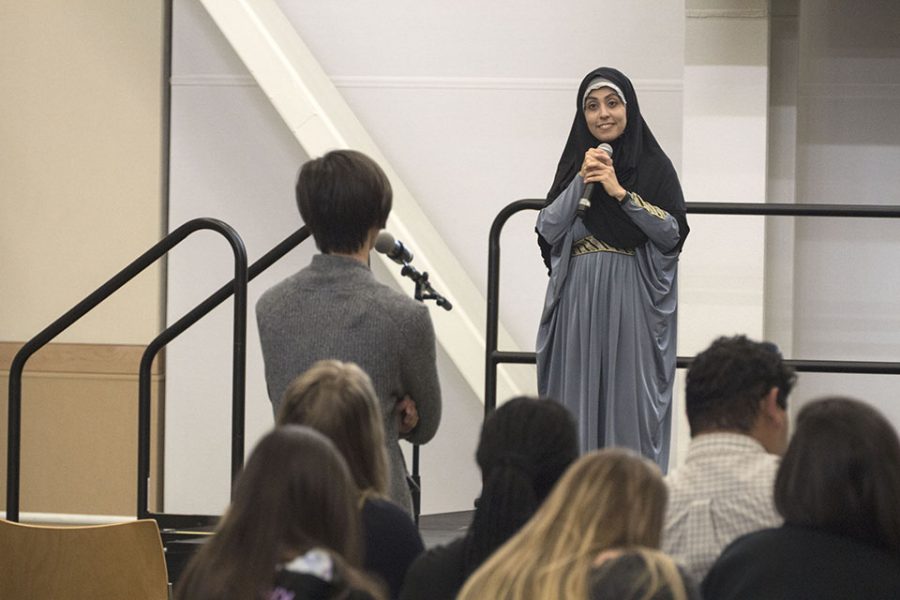Muslim life coach discusses misconceptions of Islam with CSUSM students
May 11, 2016
Zohra Sarwari, Muslim author of “No! I am not a Terrorist!,” held a presentation at CSUSM to teach students about misconceptions of Islam in relation to terrorism.
Sarwari holds a Bachelor’s degree in psychology and a Master’s degree in Business Administration and is a business and life coach. She hosted the presentation May 3 in the USU Ballroom as part of her mission to educate others about her faith.
She began the event by defining terrorism, which she defines in her book as “acts which are intended to create fear, which are perpetrated for an ideological goal and deliberately target or disregard the safety on non-combatants.”
Sarwari then moved on to discussing the tendency of mass media to relate Islam to terrorism.
Sarwari explained that when a member who claims to be of Islamic faith commits an act of murder, they are deemed a terrorist. She then mentioned when a member of another faith commits a similar act, the word “terrorism” is never associated with the perpetrator.
Sarwari mentioned that the cruelties against African Americans and Native Americans fit into the definition of terrorism, but were never labeled as acts of terrorism.
She also discussed the case of Robert Doggart, who admittedly planned to carry out a coordinated attack on Muslims living in Islamberg, New York. Sarwari also mentioned that James Eagan Holmes, who carried out the movie theater shooting in Aurora, Colorado on July 20, 2012, was immediately labeled “mentally ill,” rather than being labeled a terrorist.
Sarwari also explained the a member of the Islamic faith is “one who submits him or herself to God.” She also said that followers of Islam do not believe in acts of terrorism like killing or suicide bombing, an idea that is reinforced in the Quraan.
The meaning of Jihad, according to Sarwari, is often misconstrued through media. She defined it as the struggle within yourself to make yourself at the lower level, and the struggle to stand up against oppression at the higher level.
Sarwari discussed the different beliefs on surveillance of Muslim communities held by a number of presidential candidates and how these beliefs infringe on the First Amendment rights of members of the Islamic faith.
Sarwari hoped to instill a deeper understanding of Islam in members of the audience and hoped to make them aware of the love that Islam is based upon. She said that she hopes to spread awareness of the misunderstandings of her faith and eradicate any fear that may be attributed to it.
“The key to change is to let go of fear,” Sarwari said.






